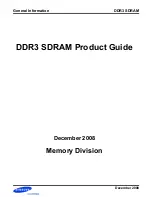
iDCS 500
PROGRAMMING
TECHNICAL MANUAL
PART 2 AUGUST 2003
MMC: 851
ALARM REPORTING
DESCRIPTION:
This MMC is used to view, store, print or clear system alarms. There are two levels
of faults displayed via alarm code, major alarms and minor alarms. Major alarms
codes are usually service affecting and require a certified technician to determine
the fault. A minor alarm indicates a fault that may or may not be service affecting
and usually does not seriously degrade the systems operating capabilities. The
alarm buffer will hold up to 100 alarms on a first in - first out (FIFO) basis. Alarms will
provide a date and time stamp based on the system time. If applicable the hardware
cabinet, port, and/or slot will be displayed. If an ALARM SIO port is programmed
(MMC 804) alarm information can be printed on demand and also prints as alarm
information is provided.
✳
System Alarm Reporting is only available on a system with a LAN module
installed on the MCP card.
ALARM REPORTING OPTIONS
(Select one of the options)
0
VIEW ALARM
View alarm buffer
1 OVERFLOW
CONTROL
OVERWRITTEN
−
When buffer is full, the
oldest entry in buffer overwritten.
STOP
RECORDING
−
When buffer is full, stop
recording alarms.
2
CLEAR ALARM BUF
Clears alarm buffer.
3
PRINT ALARM BUF
Prints contents of alarm buffer to the assigned
alarm IO port.
ALARM CODE LOCATION DEFINITION
(See Alarm Code Table)
C:
Cabinet
number
S:
Slot
number
P:
Port
number
Note: Cabinet, slot and port do not apply to all alarm codes
HOME
PAGE
Table of
Contents
HELP
















































